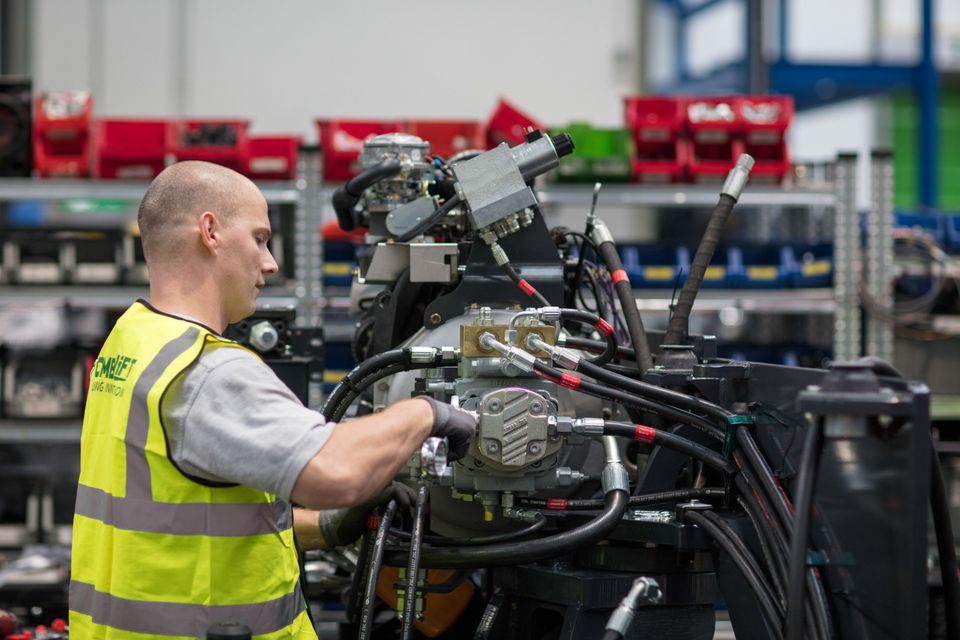Manufacturing output slows in April as cost pressures ease
Operating expenses fell for the first time since June 2020
A worker assembles part of a forklift truck at the Combilift factory in Co Monaghan. Photograph: Patrick Bolger/Bloomberg — © Bloomberg
Irish manufacturing activity fell again last month, with firms less upbeat about future demand. But there are signs that cost pressures are easing, which could be good news for consumers.
AIB’s manufacturing purchasing managers’ index (PMI) came in at 48.6 in April, down from 49.7 in March, following a positive reading (of more than 50) in February.
Any reading under 50 indicates a contraction in activity.
“The sector continues to struggle, as has been the case since last summer,” said AIB chief economist Oliver Mangan. “However, this is in line with the trend in most other economies.”
The downturn in Irish activity is not as severe as it was in the eurozone and the UK in April.
A bright spot on the horizon is that operating expenses for Irish manufacturing firms fell for the first time since June 2020.
While only marginal, the fall reversed a trend of ever-rising inflation, helped by a moderation in raw material prices.
Central Statistics Office (CSO) figures show the wholesale price of electricity fell more than 50pc, while steel and timber costs fell more than 20pc, in the year to March. However, costs for fabricated metal, glass, cement and concrete are still rising significantly.
Read more
Manufacturers continued to increase their selling prices in April, AIB’s survey showed, although the rate of inflation eased to a 28-month low.
Companies across the eurozone have been accused of using cost inflation as cover to pad margins, with many, including major Irish-listed companies, reporting record earnings last year while the cost-of-living crisis continued to bite for consumers.
According to the CSO, domestic firms saw profits rise by more than 17pc in the final quarter of 2022 compared with the same period a year earlier. That’s more than twice the 8.2pc increase seen in the consumer price index last year.
The AIB survey showed overall manufacturing activity was hampered by a fall-off in demand in home markets and abroad in April.
“Irish manufacturing remained weighed down in April by ongoing weakness in orders and production, reflecting subdued demand conditions, including in overseas markets,” Mr Mangan said.
Weaker demand has eased pressure on supply chains, however, and delivery delays shortened significantly – the most pronounced fall since August 2009.
Manufacturers have also continued to add jobs, with employment levels across Irish factories rising for the fifth month in a row, with anecdotal evidence suggesting that firms are adding to their workforces in anticipation of higher workloads in the near future.
But while Irish manufacturers are optimistic about the future, there was a significant drop in their level of confidence in April, compared with March. Confidence was at its weakest since last December amid concerns about “uncertain future demand conditions”, the survey showed.




